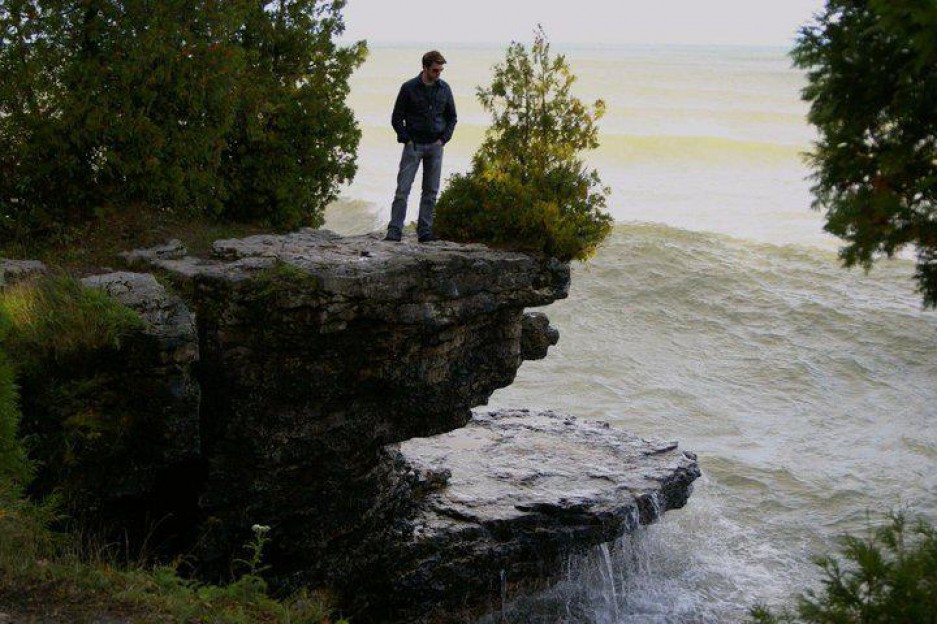On the Threshold of Liberty (1937)
i.
On the threshold of war,
Magritte promised liberty
with a painting compartmentalizing
an octave of ambiguities held in check
by an appliqué-flat
black cannon
in the space created
by angled panels.
Walls of verdancy and altocumulus clouds.
Tessellated mechanisms.
An anonymous nude tilts
toward a suggestion of flame.
ii.
July’s uncompromised
Texas
sun on the collarbones
glinting rivulets of sweat
purl,
a sprouting of slightly curled
hair fanning out
to just beyond the attentive nipples
retracting
sepia-flow bisecting the abdominals;
slick hands, thumbs shuck
fine cotton from hip-hooks.
Every inch glistens
upon a precipice
among the tiered ledges of Hippie Hollow,
and he
one of many young men
who plunge
into the dam-made distensions
and depths of Lake Travis.
iii.
A graded cement path embedded
with river pebbles
ascends to the threshold
of a charred pit, a cavity
like December, an emptied swimming pool.
Nobody was hurt last night.
Something smolders.
Skeletal studs transgress
the retaining wall wet with the elements.
Drizzled mist obscuring
ravines, then neighbors.
A young woman came home to marry.
Affixed to the metal banister
a seared veil
(dripping, rustling)
blossoms like the ohia lehua
on the scorched slopes of Mauna Loa.
She’ll borrow more than planned.
iv.
The Hennepin Canal, a weeping gash
cleaving corn fields,
slides toward Rock Island.
Docks. Mississippi River barges.
The railyards that reel in mile-long trains
more economically
than a gouged waterway
without expediency among the stands
of cottonwood, catalpa, black
walnut. Mulberries, raspberries
lower their fruit
to the murky mirror-surface
to colonize new banks
to see their feral reflection.
Shouldering the northern boundary
of an historic distribution,
a clutch of red-eared sliders basks
on the emerging
limbs of a submerged hickory
skirted
by unretrieved sport fish.
v.
All dials align
in a confluence of eights.
The Water Cube waits empty, incandescent.
Its ready lanes maximized
for glorious upon glorious
achievements in speed.
Tenths of seconds matter
as eight and two thousand
volunteers from the compulsory Red Army
Fou drum
the Olympic countdown
in the bowl of the Bird’s Nest.
The machinations.
The mechanistic precision
of rachet wheel and return spring.
The delicate hairspring
tensely wound; the holding back
of Tai Chi masters
and space between the Gate
and Hall of Supreme Harmony
near Military Eminence
in the Forbidden City.
Southward is the stage,
Tiananmen Square, counting.
vi.
Venice of the Middle East – Basra City.
Canals radiate from the Shatt al Άrab
until it unfolds into the sea.
Stillness envelops mid-day
along pockmarked streets.
A sun illuminates
empty window ledges.
Sheets are drawn
where there are no curtains.
Armored vehicles define
areas of influence.
There is a dusty
matte-sheen to them.
And a torpid response
to necessary errands.
A dull peace
derives from their presence.
[Check out other original poems here.]

